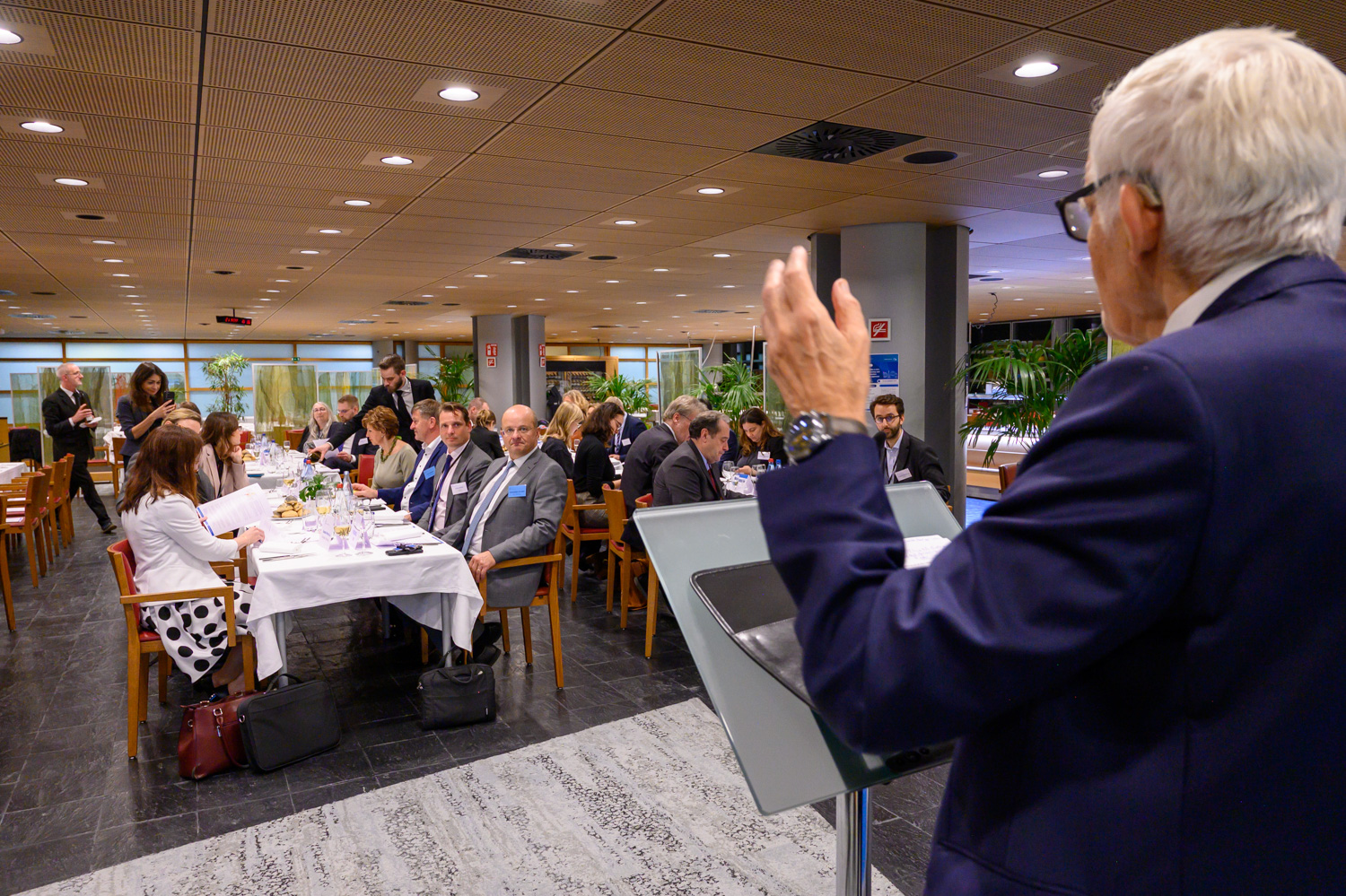The role of SMRs in EU’s strategic autonomy and decarbonisation: A value chain approach
Chaired by Jerzy Buzek MEP, EEF President
Speakers:
Anne-Sophie Schmitt, Coordination and External Relations Lead, NUWARD, EDF
Hidde Baars, Director Government Affairs for the Netherlands & EU, Urenco
Zuzana Petrovičová, Head of Unit, Nuclear energy, nuclear waste and decommissioning, DG ENER, European Commission
Franc Bogovič, EEF Director, ITRE Rapporteur – INI Report on SMRs
In his introductory remarks, Jerzy Buzek MEP, EEF President explained the role that Small Modular Reactors (SMRs) could play in reaching EU’s decarbonisation and strategic autonomy goals by contributing, among others, to the decarbonisation of sectors such as district heating, steel or chemical industries.
Hidde Baars, Director Government Affairs Netherlands & EU, Urenco presented the fuel producer perspective. Both the climate crisis and the energy security issues have led to an increasing interest in large-scale reactors as well as SMRs and Advanced Modular Reactors (AMRs). Many SMRs are designed on proven technology and on commercially available fuel. Mr Baars explained that, in the upcoming years, fourth generation reactors and research reactors will require advanced nuclear fuels, including Low Enriched Uranium+ (LEU+), enriched at 10%, and Higher Assay Low Enriched Uranium (HALEU), which has an enrichment level between 5 and 20%. Currently, Russia is the only commercial supplier of these two types of fuel. For this reason, he stressed that the evolution of the European nuclear fuel cycle is key to EU’s energy independence and to strengthen its global leverage.
Anne-Sophie Schmitt, Coordination and External Relations Lead, NUWARD, EDF reflected the power generator perspective by presenting the NUWARD SMR technology which targets the replacement of fossil-based plants, grids with limited capacity, and industrial sites requiring electricity or heat. She explained that NUWARD SMRs are composed of two reactors of 170 MW each that employ standard fuel with an enrichment of less than 5%. Ms Schmitt underlined that the Intellectual Property belongs to European players only, and that the support of national and European institutions is key to safeguard and strengthen it. Since there are still technical, regulatory and fuel limits to be overcome, she explained that technology-neutral policy tools are needed, alongside cooperation among EU Member States in order for it be able to play a significant role in terms of climate goals and energy independence.
Zuzana Petrovičová, Head of Unit, Nuclear energy, nuclear waste and decommissioning, DG ENER, European Commission highlighted the role that nuclear energy plays in EU’s pathway to decarbonisation and that, therefore, the SMR technology needs to be explored. In this respect, the European Commission published a vision paper for SMRs deployment in the EU by 2030. In line with this document, five work streams have been identified: market uses of SMRs, standardisation of licensing, financing, supply chain development also at the local level, and research, also looking at newer generations of SMRs. Ms Petrovičová further explained that the European Commission is willing to support the existing technology, while also working on fourth generation reactors. She concluded that the newly created SMRs Industrial Alliance aims at having European SMRs by 2040.
Franc Bogovič (EPP, Slovenia), EEF Director, ITRE Rapporteur – INI Report on SMRs considered that the European Green Deal, the COVID-19 pandemic and the energy crisis have all led to the current momentum and support for nuclear energy. Mr Bogovič pointed out that the reduced dimensions and modularity of SMRs can target district heating, heat in industries, and grid integration of renewable sources. He stressed that the INI Report on SMRs has tried to be as comprehensive as possible. He concluded by underlining that the compromise text reached in the ITRE Committee sends a clear message from the European Parliament in supporting SMRs and nuclear energy more broadly.
During the Q&A session participants discussed different aspects related to SMRs, including public procurement, the safety standards for SMRs, the European Commission’s future steps to support the deployment of this technology in the European Union, the role of nuclear in the 2040 climate targets, as well as the need for strategic autonomy in the nuclear fuel cycle.



